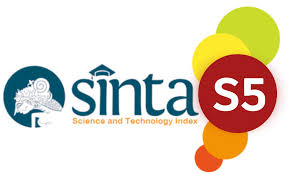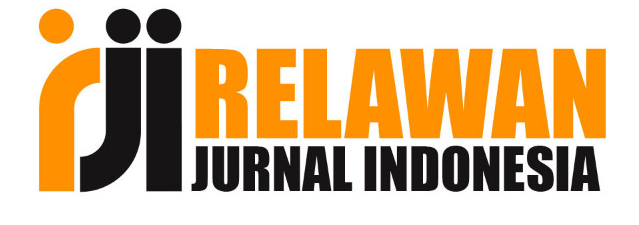THE LINK BETWEEN VLS AND READING COMPREHENSION
DOI:
https://doi.org/10.36982/jge.v10i2.2530Keywords:
vocabulary, learning strategies, reading comprehensionAbstract
The purpose of this study was to determine the correlation between vocabulary learning strategies and reading comprehension, as well as the extent to which vocabulary learning strategies contributed to students' reading comprehension. The correlational research design was used for this study. The sample of 68 students was chosen using the purposive sample technique. The questionnaire on vocabulary learning strategies and the reading comprehension test were used to collect data and Pearson Product Moment and regression analysis were used to analyze the obtained data. The study found that students' vocabulary learning strategies questionnaire and reading comprehension test scores were in the average range. First, with a p-value 0.003 less than the alpha value of 0.05, there was a significant correlation between vocabulary learning strategies and reading comprehension of tenth-grade students at SMA N 10 Palembang. The R-value of.358 indicates that Ha was accepted and Ho (null hypothesis) was automatically rejected. A low correlation was discovered between vocabulary learning strategies and reading comprehension of SMA N 10 Palembang tenth-grade students. Second, the regression value revealed 0.128 influences of vocabulary learning strategy and reading comprehension, implying that the contribution and interaction effect of vocabulary learning strategy and reading comprehension was 12.8%.
References
Ahour, T & Salamzadeh, P. (2014). Vocabulary Learning Strategies Used by Poor Iranian High School Students. International Journal of Language Teaching and Research, 2(1), 12-15.
Anderson, N. J. (2003). Metacognitive Reading Strategies Increase L2 Performance. The language teacher online. Vol. 27(7): pp.1-3.
Argaheni, N. B. (2020). Sistematik Review: Dampak Perkuliahan Daring Saat Pandemi Covid-19 Terhadap Mahasiswa Indonesia. PLACENTUM: Jurnal Ilmiah Kesehatan dan Aplikasinya. 8.99.10.20961/placentum.8i2.43008.
Aryeal. (2010). Developing A model of teaching reading comprehension for EFL student. New York: Pearson Education.
Asley, C (2018). Understanding purposive sampling an overview of the method and its applications.
Bennet. (2006). Vocabulary learning strategies questionnaire. European Journal of Social Sciences, 23 (4).
Brumfit. (2001). Individual Freedom in Language Teaching, Oxford: Oxford University Press.
Creswell, J. W. (2002). Educational Research. Planning, Conducting, and Evaluating Quantitative and Qualitative Research. London: Pearson Education.
Creswell, J. W. (2012). Educational Research: Planning, Conducting, and Evaluating Quantitative and Qualitative Research (4th Ed). Boston. MA: Pearson Educational, Inc.
Douglas, B. (2016). Global learning and the school curriculum. A pedagogy for global social justice. Abingdon; Routledge.
Duke, N., & Bennett-Armistead, V. (2003). Reading and writing informational text in the primary grades: Research-based practices. New York: Scholastic.
Fraenkel, J. R., &Wallen, N. E (2016). Educational research. A quide to the process. New York: McGraw-Hill, Inc.
Gang, X. (2014). A Study on English Vocabulary Learning Strategies Used by Chinese College Students. CS Canada, Studies in Literature and Language, 9(1), 111- 116.
Ghazal, L. (2007). Learning vocabulary in EFL contexts through vocabulary learning strategies. Novitas-Royal,1(2), 84-91
Goundar, P. R. (2019). Vocabulary Learning Strategies (VLSs) Employed by Learners of English as a Foreign Language (EFL). English Language Teaching, 12(5), 177-189.
Haq. (2014). Cretaceous Eustasy Revisited. Global Planetary Change, 113.44-58.
Haris & Hodges. (2007). The literacy dictionaries. Newark, DE: International Reading Association.
Hiebert & Kamil. (2005). Teaching and learning vocabulary bringing research to practice. New Jersey. Lawrence Eriblaum Associates. Inc.
Howart, P. (2006). Making reading communicative. 2nd.
Hulstijn, J. & Laufer, B. (2001). Some empirical evidence for the involvement load hypothesis in vocabulary acquisition. Language Learning 51/3:539- 58.
Joyce, B. (2006). Models of Teaching. Edisi 8. Yogyakarta. Pustaka Belajar.
Kafipour, R., & Naveh, M. H. (2011). Vocabulary learning strategies and their contribution to reading comprehension of EFL undergraduate students in Kerman province. European Journal of Social Sciences, 23(4), 626-647.
Klingner, J. K., Vaughn, S., & Boardman, A. (2007). Teaching Reading Comprehension to Students with Learning Difficulties. New York, NY: The Guilford Press.
Nation, P. (2001). Learning vocabulary in another language. Cambridge: Cambridge UniversityPres
RAND (2002). Reading for Understanding, toward Program in Reading Comprehension. Santa Monica, CA: RAND, DOI: 10.4236/ce.2015.622246.
Richard & Schmidt (2012). Longman Dictionary of Language Teaching and Applied Linguistic. (4thed). Harlow: Longman.
Richards J. C. (2009). Longman dictionary of language teaching and applied linguistic (3rded). Toronto: Longman Pearson Education Limited.
Ruddle. (2005). Palm Sago A Tropical Starch from Marginal Lands, An East- West Center Book, Honolulu.
Schmitt, N. (2008). Review article: Instructed second language vocabulary learning. Language Teaching Research. (pp. 329-363).
Sismiati. (2012). Create a Reading comprehension. Longman-Inc.
Soedjito. (2009). The vocabulary of English. Jakarta. Gramedia Pustaka Utama.
SoSHEC (2017). Vocabulary Learning Strategies and Reading Comprehension. Https://doi.org/10.2991/ soshec-17.2018.40.
Subiyantoro (2011). The skill of reading comprehension. Yogyakarta: Graha Ilmu.
Tavakoli (2014). The nature of silent Reading. Boston: Pearson Education.
Thornbury. (2002). Toward a model of motivated vocabulary learning: A structural equation modeling approach. Language Learning.
Uno, H. B, & Koni, S. (2012). Learning assessment. Jakarta: BumiAksara.
Downloads
Published
How to Cite
Issue
Section
License
Global Expert: Jurnal Bahasa dan Sastra is published by Universitas Indo Global Mandiri and licensed under a Creative Commons Attribution-ShareAlike 4.0 International License.











